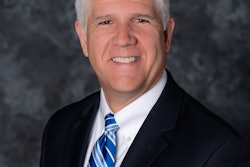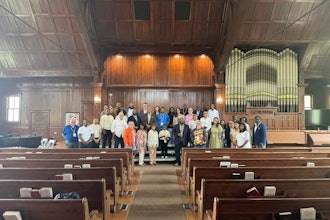Around 80 percent of students in the United States end up changing their major at least once, according to the National Center for Education Statistics.
Those stats resonate with Jason Roscoe who didn’t know what career he wanted to pursue either, when he enrolled as an undergraduate at Mansfield University located in Pennsylvania.
“I initially started out as a biology major and realized that the math that was involved, it wasn’t going to work out for me,” said Roscoe, who is the department chair of Academic Advising at the Community College of Philadelphia (CCP). “Then I actually changed to special education and then ultimately landed in criminal justice because I did have a genuine interest.”
During this time at Mansfield, Roscoe was also a three-sport athlete, participating on the basketball, football and track teams. Someone who Roscoe said helped him in this time of uncertainty was his adviser, who exposed him to the impact that academic advising can have on a students’ trajectory.
He recalls his adviser “getting on my case and calling me and having me come into her office constantly” in part attracted him to the profession, he said.
After earning his master’s degree in higher education at Mansfield, Roscoe was hired by his former adviser to be an academic advising faculty member at the university. He also was the director of Mansfield’s minority mentoring program.
In 2016, he left his alma mater — upon receiving both tenure and promotion — to join the Community College of Philadelphia. It was a decision that left many in awe, Roscoe recalled.
“…it was my alma mater and I could’ve been there, I didn’t have to leave,” he said about the risky move. “It took a lot to earn both tenure and promotion, but for me, it was about the challenges and the exciting opportunities that presented itself to come to the Community College of Philadelphia.”
As chair of the Department of Academic Advising at the college, a role that he was nominated to fill by his colleagues after the department was established in 2017, Roscoe provides vision and oversight for the advising processes and practices at CCP, including the development and execution of a holistic advising model approach.
“In my approach as a leader, it’s not about me it’s about we, in terms of just trying to help CCP improve the persistence and retention rates and give students point persons of individuals here at the college who they can go to and trust and build relationships with and feel valued, feel like they’re receiving great advice,” Roscoe said.
Prior to the establishment of the Academic Advising department, the college — which annually serves around 27,000 students — had its advising conducted “by typically full-time and part-time teaching faculty,” Roscoe said.
The decision to create a department solely focused on advising stemmed from the school’s implementation of the Guided Pathways model, Roscoe added.
“The central idea is that advising services need to vote upon and reinforce the pathways program design, which features things like helping students select and enter their program of study, tracking their progress through their specific programs and as they reach different milestones, providing frequent feedback to students on their progress and intervening when need be,” he said.
When the department launched, they had seven full-time academic advisers as staff, and now, Roscoe said, they have 10 and are in the process of hiring another staffer.
One of the key components of the Guided Pathways reform focuses on educational planning. As a result, Roscoe said, the advising faculty members are responsible for creating an educational plan for CCP students.
Currently, around 75 percent of the incoming first-time students at CCP have an adviser assigned to them when they begin their studies.
“We have a great group of full-time academic advisers as well as our part-time advising faculty,” Roscoe said. “I just can’t speak enough about the effort and the tremendous work that they put in just a short period of time. They’ve been great to work with.”
Having been an advising faculty member at both a university and community college, Roscoe said the main differences are the class size and the student demographics. For instance, Mansfield is a predominately White state institution, with about 93 percent of people living in that area identifying as White.
“I think being here in Philly, it is more challenges,” he said. “Our students come from schools that just don’t have the resources that they need to provide a good quality education.”
Roscoe said that there are a number of “systemic issues” that impact students’ ability to succeed in the classroom.
“What I mean by that is food, coming from single parent homes, those types of things I think play a big part in not having someone j who believes in them and that they will be successful and just being there in terms of support,” he said.
Still, he said that he welcomes the opportunity to help students, which is why he loves his job.
“One of the things that I preach to my faculty, is that as advisers it’s important that we remove any preconceived notions that we have about an individual that we come in contact with because we may be their last line of support,” he said. “So just trying to keep an open mind and try to guide and provide the best advice that we can and just try to be here for students.”
Monica Levitan can be reached at [email protected]. You can follow her on Twitter @monlevy_









